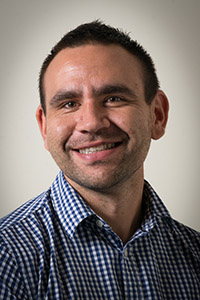
.
1 August 2017
I am an Narangga and Arrente man. My mother hailed from the Narangga community. My father was a white man from Wolverhampton in England. I was brought up by my grandmother, however I was also guided my grandfather, aunties, uncles and cousins, brothers and sisters. My grandfather, an Arrente man lived in Alice Springs with his mother who was a traditional Arrente woman, living in Tennant Creek.
I learnt from my childhood that connection to culture is important and empowering.
As a child, I spent most of my life with my grandmother who taught me the value of respect among our people. Uncles and aunties played a big role in my up-bringing and that reinforced this respect. Connecting with my grandmother’s country meant undertaking activities such as spear fishing over on Wardang Island. I also spent a lot of time with my grandfather in Tennant Creek, where I was immersed in my culture and connected to country.
People providing a service to Aboriginal children and young people need to have a willingness and desire to understand kinship. They need to have some idea about the complex nature of family and individual family roles like nan (grandmother) and puppa (grandfather), uncles, aunties, cousins, sisters and brothers. They need to know something about skin names, totems and connections with certain communities. Nunga children hold connection to culture and values in high regard and like to be close with family particularly grandparents and listening to their stories.
I see my role within the Guardian’s Office is to promote the importance of connection to culture and strongly advocate for all Aboriginal children and young people in care to be able to connect to their culture and their communities.
I’d like non-Aboriginal Australians to understand what we as Aboriginal people have faced and continue to face. We still carry the burden of historical injustices, the stolen generation and forced assimilation into white society with the loss of our culture. Daily, we still experience racism and are stigmatized and distrusted. Our people live with the trauma of lost culture and the premature death of so many of our Elders and young people.
Aboriginal young people are strongly affected by relationships and need people in their lives to be consistent, honest and trustworthy. We at the Guardian’s Office need to let children and young people know about our role. To do this we need to build a connection by ongoing engagement with the community and the children and young people. My recent visits to some Aboriginal children and young people in their residential care homes helped them and the people who look after them to become aware of our office and to create a connection.
When working with Aboriginal children and young people, we need to consult and engage with the Aboriginal community and to recognise and work with the Elders. To do this we must be open, honest and genuine. We need to be respectful of the culture, traditions and the Elders of the communities and to respect their ownership of issues affecting their young people. We need to acknowledge and make use of the uniquely valuable and relevant knowledge that communities have about their children. We should offer our knowledge and insights with humility. Where we can, we should make use of the language of the land on which we meet and try to use stories and images to connect in a human and credible way.
Finally, this cannot be done quickly. We need to be patient and consistent and allow all of the time necessary to develop trust and understanding.


One Response
I agree that non indigenous people need to gain an understanding of your kinship, skin names, totems etc. when we learn this we can have a better understanding of how and why the wrongs of the past are still so poignant today. I believe that teaching non indigenous this alongside the timeline will assist in better understanding and more empathy thus moving toward reconciliation.